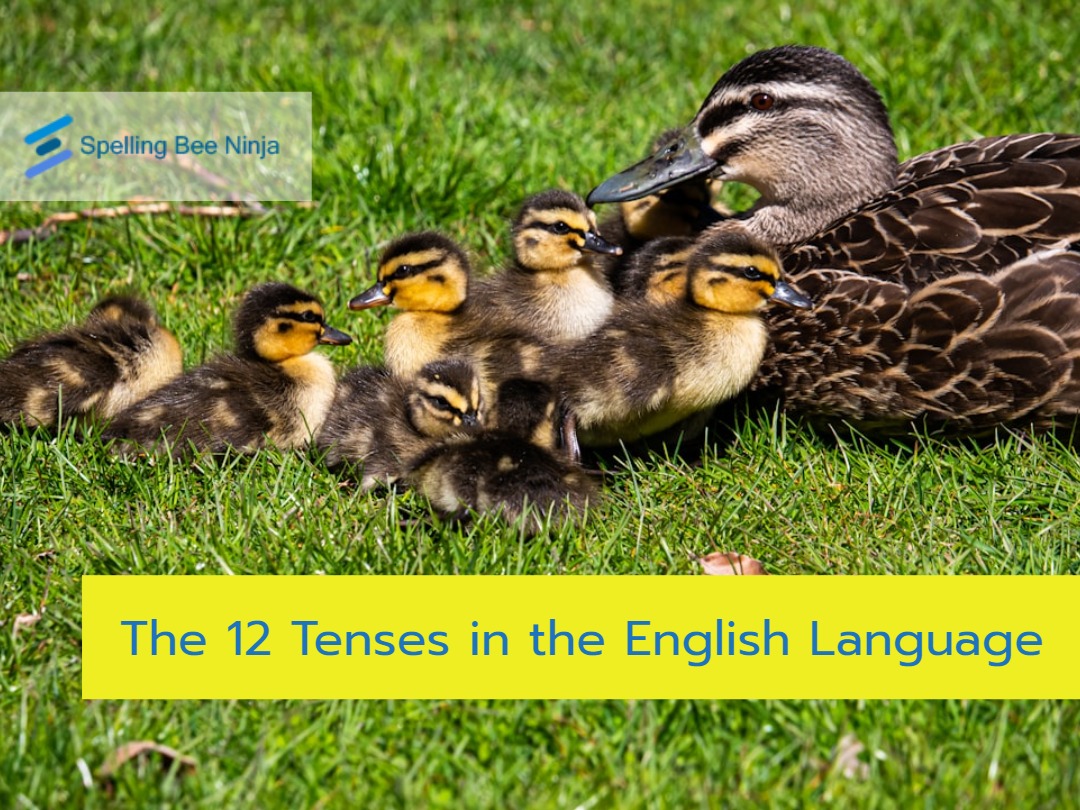The English language has 12 main tenses, divided into three primary time frames: past, present, and future.
Each time frame is further categorized into four aspects: simple, continuous (progressive), perfect, and perfect continuous. These tenses allow speakers to express actions and events with varying degrees of detail and emphasis. Let’s explore each tense in depth.
Present Tenses
1. Present Simple
The present simple tense is used for habitual actions, universal truths, and general facts.
Structure: Subject + base verb (add –s or –es for third-person singular)
Examples:
- I walk to school every day.
- The sun rises in the east.
- She works at a hospital.
2. Present Continuous
The present continuous tense describes actions happening right now or temporary actions.
Structure: Subject + am/is/are + verb (base form) + –ing
Examples:
- I am reading a book.
- They are playing football in the park.
- She is staying with her friends this week.
3. Present Perfect
The present perfect tense expresses actions that occurred at an unspecified time in the past or actions that began in the past and continue to the present.
Structure: Subject + has/have + past participle
Examples:
- I have visited Paris.
- She has finished her homework.
- We have lived here for five years.
4. Present Perfect Continuous
The Present Perfect Continuous tense is used to describe actions that started in the past and are still ongoing, often emphasizing the duration.
Structure: Subject + has/have + been + verb (base form) + –ing
Examples:
- I have been studying all morning.
- They have been playing soccer since noon.
- She has been working on the project for weeks.
Past Tenses
5. Past Simple
The past simple tense describes completed actions or events that occurred at a specific time in the past.
Structure: Subject + past form of the verb
Examples:
- I walked to the store yesterday.
- She watched a movie last night.
- They visited their grandparents last weekend.
6. Past Continuous
The past continuous tense describes ongoing actions or events that were happening at a specific time in the past.
Structure: Subject + was/were + verb (base form) + –ing
Examples:
- I was reading a book when the phone rang.
- They were playing football at 3 PM.
- She was cooking dinner when I arrived.
7. Past Perfect
The past perfect tense describes actions that were completed before another action or time in the past.
Structure: Subject + had + past participle
Examples:
- I had finished my homework before dinner.
- She had already left when we arrived.
- They had built the house by 1990.
8. Past Perfect Continuous
This tense emphasizes the duration of an action that was ongoing before another past action or time.
Structure: Subject + had + been + verb (base form) + –ing
Examples:
- I had been studying for hours when he called.
- She had been working at the company for five years before she quit.
- They had been playing soccer for an hour before it started to rain.
Future Tenses
9. Future Simple
The future simple tense describes actions or events that will happen in the future.
Structure: Subject + will + base verb
Examples:
- I will travel to Japan next year.
- She will call you tomorrow.
- They will attend the meeting later.
10. Future Continuous
The future continuous tense describes ongoing actions that will be happening at a specific time in the future.
Structure: Subject + will + be + verb (base form) + –ing
Examples:
- I will be reading a book at 8 PM.
- They will be playing soccer this afternoon.
- She will be staying with her friends next week.
11. Future Perfect
The future perfect tense describes actions that will be completed before a specific time or event in the future.
Structure: Subject + will + have + past participle
Examples:
- I will have finished my homework by 7 PM.
- She will have graduated by next year.
- They will have built the house by the end of the month.
12. Future Perfect Continuous
This tense emphasizes the duration of an action that will have been ongoing before a specific time or event in the future.
Structure: Subject + will + have + been + verb (base form) + –ing
Examples:
- I will have been studying for two hours by the time you arrive.
- She will have been working at the company for a decade next year.
- They will have been playing soccer for three hours by the end of the match.
Full Lessons and verification tests
For each tense we prepared for you complete guides and verification tests. Check them all to know everything about the 12 English tenses and use them as a reference guide when you need to refresh your knowledge. You can also use them in your lessons or for classroom activities. Tests are multiple choice, each one is composed by ten multiple choice question, completely free to take, results are presented right on your screen when finished.
| Present Simple | Complete Guide | Verification Test |
| Present Continuous | Complete Guide | Verification Test |
| Present Perfect | Complete Guide | Verification Test |
| Present Perfect Continuous | Complete Guide | Verification Test |
| Past Simple | Complete Guide | Verification Test |
| Past Continuous | Complete Guide | Verification Test |
| Past Perfect | Complete Guide | Verification Test |
| Past Perfect Continuous | Complete Guide | Verification Test |
| Future Simple | Complete Guide | Verification Test |
| Future Continuous | Complete Guide | Verification Test |
| Future Perfect | Complete Guide | Verification Test |
| Future Perfect Continuous | Complete Guide | Verification Test |
Conclusion
Understanding and mastering the 12 tenses of the English language is essential for effective communication. Each tense serves a specific purpose, allowing speakers to express actions and events clearly across time. By practicing these tenses in various contexts, learners can develop greater fluency and confidence in their English language skills, don’t forget to take the test on the 12 English Tenses here.
- ✈️ The 12 Tenses in the English Language
- ✈️ The Present Simple Tense
- ✈️ Present Continuous Tense in English
- ✈️ Understanding the Present Perfect Tense in English
- ✈️ Understanding the Present Perfect Continuous Tense
- ✈️ Understanding the Past Simple Tense in English
- ✈️ The Past Continuous Tense: A Comprehensive Guide
- ✈️ The Past Perfect Tense in English: A Comprehensive Guide
- ✈️ Understanding the Past Perfect Continuous Tense
- ✈️ Future Simple Tense: A Comprehensive Guide
- ✈️ Future Continuous Tense: A Comprehensive Guide
- ✈️ Understanding the Future Perfect Tense
- ✈️ Future Perfect Continuous Tense


